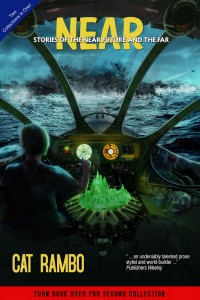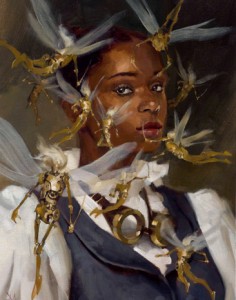 Every culture tells stories. We keep our history alive this way. We all have rituals, whether they are secular or deeply religious. When you’re worldbuilding, you can communicate a plethora of culture and history through the traditions and festivals your characters observe.
Every culture tells stories. We keep our history alive this way. We all have rituals, whether they are secular or deeply religious. When you’re worldbuilding, you can communicate a plethora of culture and history through the traditions and festivals your characters observe.
Coming up on December 10th, I’ll teach Christmas in Narnia: Creating Traditions for Fictional Cultures for the Rambo Academy for Wayward Writers. Pardon the frosty pun, but a fictional holiday is an excellent tip to the iceberg of your world’s history. Consider the wealth of similarities and differences of the festivals of lights that originate from the Northern Hemisphere of our planet alone:
During the season of autumn into midwinter, things get darker and colder in most of the NH. The further north you go, the more stark that dark and cold becomes. Many traditions originating in the Northern Hemisphere have celebrations and rituals revolving around light and warmth at this time. India and its diaspora bring us Diwali and Deepavali, two different but similar multi-day festivals of lights, color, and life. Judaism celebrates Hanukkah as the observance of a historical miracle–eight nights of light produced from barely any fuel oil. A fun side note: we eat fried foods like latkes and donuts on Hanukkah to represent the bounty of the oil! Who wouldn’t love a holiday that prescribes feasting on greasy carbs?
On Christmas, people celebrate the birth of the Christ child, destined to bring light, love, and goodness into a harsh world. As Christianity spread through Europe, this tradition appropriated, fused with, and replaced several midwinter traditions, such as the birth of God of the Wood on the winter solstice. This nature-based deity literally brings the light and warmth back into the world as the days finally grow longer instead of shorter. In addition to a festival of eating and drinking (lots of drinking), popular Christmas tradition involves putting candles and electric lights on everything, particularly an evergreen tree. That tradition did not come from Nazareth.
Notice that these traditions change over time and will even be different in each family or community. Just as no ethnic group is a monolith, neither is any religious or secular culture. There’s so much room here for worldbuilding, not to mention internal as well as external conflict. Some progressive Jewish families have introduced an orange among the symbolic food (roasted egg, lamb bone, bitter herb, et al.) of the Passover Seder plate, meant to remind us of the struggle of women, lgbtq+ folks, and people of color in Judaism as well as all who face intersectional struggles and are often left out of the popular image of the Jewish community.
I have a Jewish mother and an essentially Unitarian father. I grew up with secular Christmas as well as a heritage-rich Hanukkah, but I’ve always gravitated toward Pagan traditions. As a kid, I was particularly smitten with the Egyptian and Greco-Roman pantheons and stories, and I assume this is because I grew up in Miami, Florida. Flowers, fruit, and flowing water made more spiritual sense to me than the scarcity theme prevalent in Abrahamic traditions. This is the sort of subtlety that can communicate the history of a culture; temperate or tropical traditions are more likely to celebrate abundance and indulgence. Desert cultures are more likely to emphasize struggle, scarcity, and abstinence, but also patience and most importantly, charity. It’s no coincidence that Islam, Judaism, and Christianity share these values and emerged from cultures living under harsh political and geographical conditions.
This brings us to another important subtlety of cultural norms. How hot is “hot?” How cold is “cold?” For that matter, how far is “far?” Does “nice” mean polite and friendly, or does it mean kind and empathic? These are the questions that shape so many nuances of a community and its culture, whether macro scale or micro. And don’t overlook the secular traditions–what does Tax Day tell us about capitalist cultures? What about the Queen’s Jubilee? For that matter, what about Juneteenth?
For more on this, please join me for Christmas in Narnia: Creating Traditions for Fictional Cultures on December 10th. Happy holidays!
Bio:
Evan J. Peterson is an author, game writer, and Clarion West alum. His latest book is METAFLESH: Poems in the Voices of the Monster (ARUS Entertainment), and recent work includes Drag Star! (Choice of Games), the world’s first drag performance RPG. His writing appears in Weird Tales, Arcana: The Tarot Poetry Anthology, and Queers Destroy Horror. Evan’s serial novel, Better Living Through Alchemy, will be published in 2023 by Broken Eye Books. linktr.ee/evanjpeterson can tell you more.
Site: www.evanjpeterson.com
Twitter: @evanjpeterson
Insta: @evan.j.peterson





